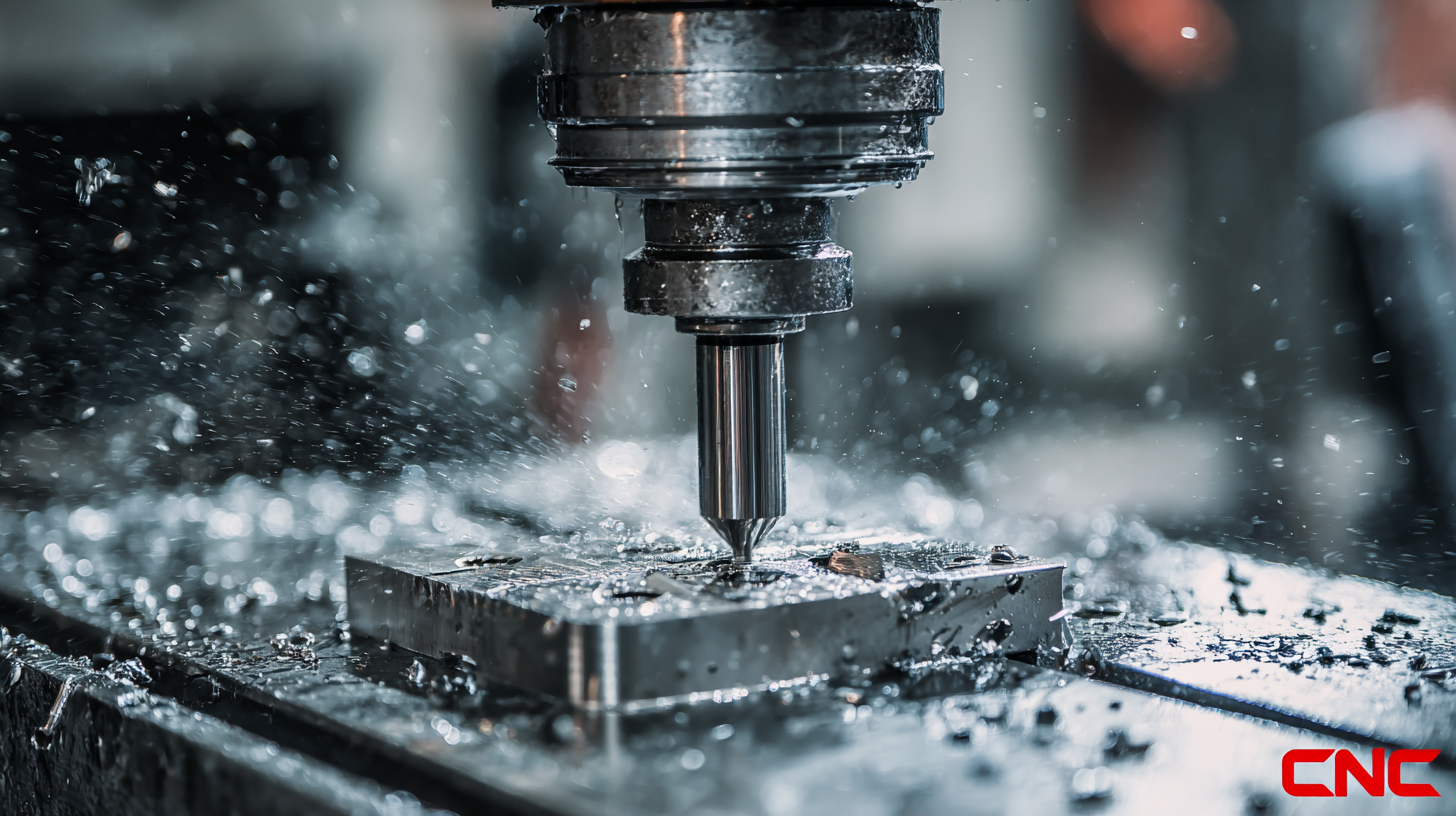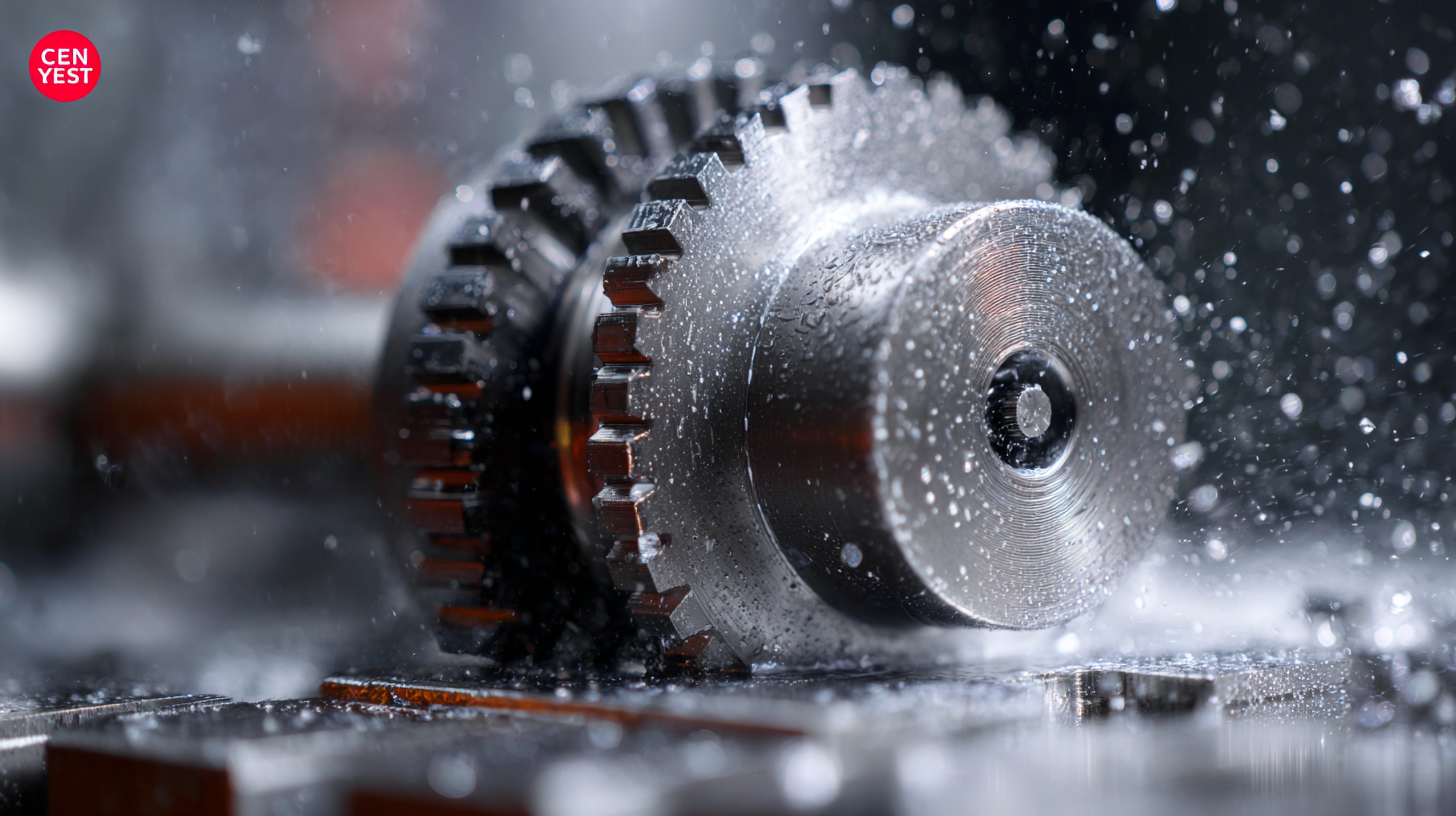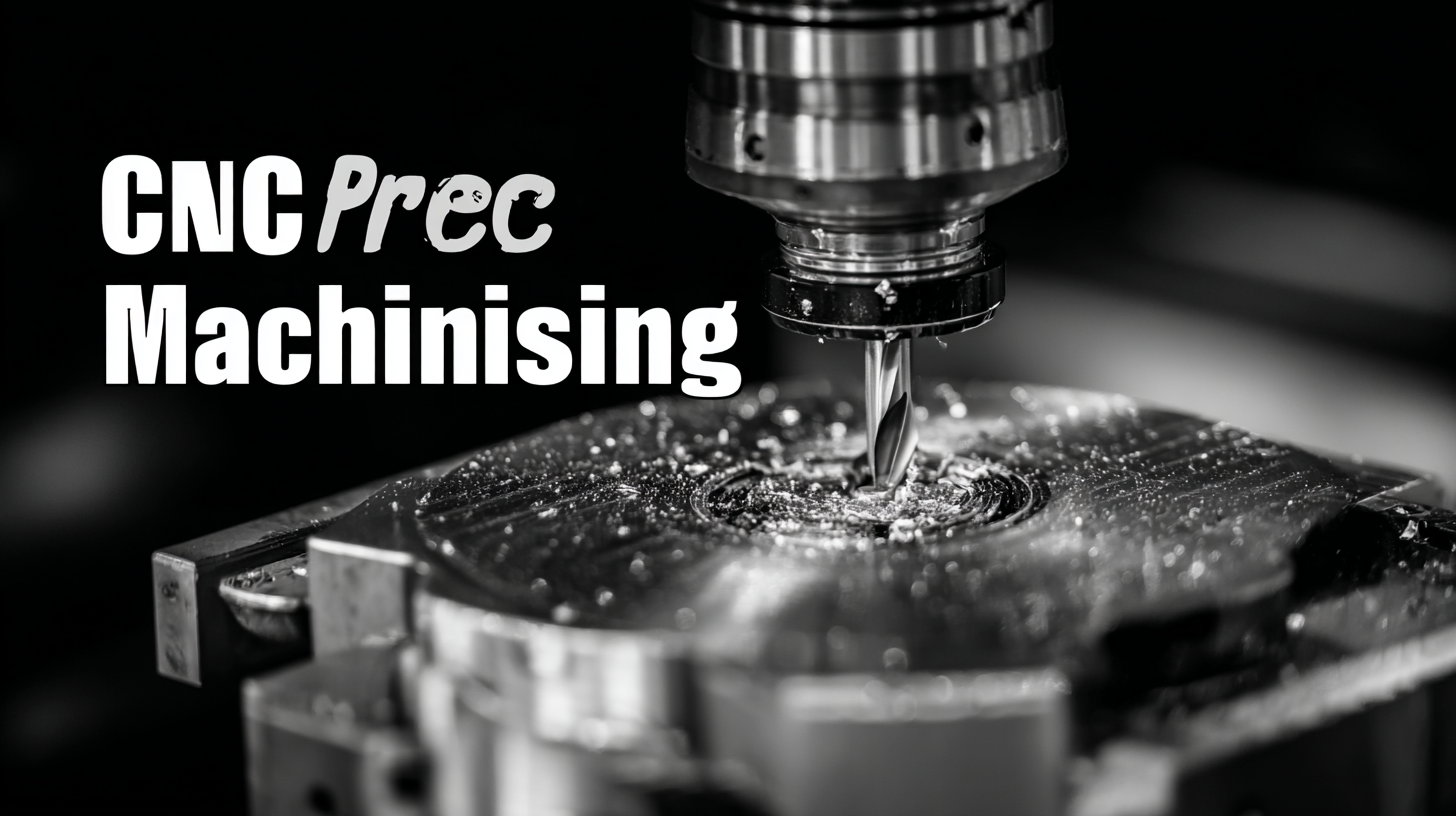7 Essential Benefits of Best Cnc Machining Precision in Modern Manufacturing
In today's rapidly evolving manufacturing landscape, the demand for Cnc Machining Precision has reached unprecedented levels. According to a report by MarketsandMarkets, the global CNC machining market is projected to grow from $63.15 billion in 2021 to $99.67 billion by 2026, highlighting the critical role precision machining plays across various industries. As manufacturers strive to enhance product quality and operational efficiency, the benefits of incorporating advanced CNC machining technologies become increasingly evident. From aerospace to medical devices, precision machining not only improves accuracy and reduces waste but also accelerates production timelines. This blog will delve into seven essential benefits of the best CNC machining precision in modern manufacturing, showcasing industry application case studies and providing "how-to" insights for leveraging this essential technology effectively.

The Role of CNC Machining in Enhancing Manufacturing Efficiency
CNC machining plays a pivotal role in enhancing manufacturing efficiency, particularly as industries embrace the fourth industrial revolution. This shift towards digitalization and smart manufacturing is reshaping the landscape of production, allowing for greater flexibility and advanced operational capabilities. In recent years, the CNC machine market has witnessed significant growth, projected to escalate substantially by 2032. This surge is largely driven by the increasing demands in sectors such as automotive and aerospace, where precision and speed are crucial.
The integration of artificial intelligence with CNC technology is further revolutionizing manufacturing processes. As companies invest in smarter, more connected CNC systems, they unlock opportunities for higher efficiency and reduced waste. Innovations such as multi-axis machining and real-time data analytics enable manufacturers to respond swiftly to market changes and optimize their production lines. As we move forward, the continuous evolution of CNC machining will undoubtedly remain at the forefront of modern manufacturing, shaping how industries operate in an increasingly competitive global market.
Achieving Unmatched Accuracy: Key Features of CNC Machining
CNC machining has revolutionized the landscape of modern manufacturing by providing unmatched accuracy in production processes. The key features of CNC machining technology, such as high-speed precision and automation, allow manufacturers to create intricate designs that meet stringent specifications consistently. As industries continue to pursue exceptional performance and quality, the integration of advanced tools and software becomes essential. Recent advancements in surface analysis software exemplify this trend, offering manufacturers actionable insights derived from raw data and enhancing their quality control measures.
Moreover, ongoing innovations in precision tools amplify the benefits of CNC machining. For instance, manufacturers utilizing high-precision plasma power sources can achieve superior cuts with minimal waste, leading to more efficient production cycles. The collaboration between metrology firms highlights the importance of precise measurements in ensuring that manufactured parts meet exacting standards. As we witness milestones in technology, such as advancements in hypersonic missile development, it's clear that the drive for accuracy extends across sectors, reinforcing the significant role that CNC machining plays in realizing complex and high-performance manufacturing solutions.
Cost-Effectiveness: How CNC Precision Reduces Waste and Increases Productivity
In modern manufacturing, precision CNC machining has emerged as a cornerstone for enhancing cost-effectiveness. By minimizing material waste, CNC technology directly contributes to improved productivity levels. Reports indicate that the stone processing machinery market, which includes milling machines, cutters, edge polishing machines, drilling machines, and finishing machines, is projected to experience significant growth. According to market analysis, the stone processing equipment market is expected to witness a compound annual growth rate (CAGR) of 6.2% from 2024 to 2034.
Additionally, the bending machine market is projected to surpass $9.5 billion by 2024, driven by the increasing demand for high-speed automation solutions within the manufacturing sector. This aligns with the capabilities of CNC machining, which allows for faster production cycles and less human error, translating into lower operational costs and optimized manufacturing processes. The integration of advanced CNC technologies is essential for companies looking to maintain a competitive edge while meeting the rising expectations of efficiency and sustainability in production.
7 Essential Benefits of Best CNC Machining Precision in Modern Manufacturing
| Benefit | Description | Impact on Cost-Effectiveness | Increase in Productivity |
|---|---|---|---|
| Reduced Material Waste | CNC precision allows for more accurate cuts, minimizing excess material. | Reduces costs by lowering material expenses. | Improves throughput as less time is spent on rework. |
| Consistency and Quality | Ensures uniformity in production, which leads to higher quality outputs. | Decreases the need for quality inspections and potential rejections. | Enhances efficiency through repeatable processes. |
| Shorter Lead Times | CNC machining can rapidly produce parts, reducing wait times. | Lower labor costs and faster time-to-market. | Increases capacity for additional orders. |
| Flexibility in Design | CNC machines can easily adapt to new designs with minimal setup changes. | Reduced costs associated with design changes. | Allows quicker adaptation to market demands. |
| Labor Savings | Automation of processes reduces the need for manual labor. | Decreases overhead and labor costs significantly. | Redirects workers to higher-value tasks. |
| Enhanced Safety | CNC machines operate with less human interaction, mitigating risks. | Reduces costs associated with workplace accidents. | Frees up resources for productive work rather than recovery. |
| Precision Production | Exact measurements and tolerances lead to better fitting components. | Minimizes costs tied to corrections and adjustments. | Lower cycle times due to fewer errors needing correction. |
Improving Design Flexibility: CNC Machining for Complex Geometries
CNC machining has significantly enhanced design flexibility, especially for complex geometries in modern manufacturing.
The ability to create intricate shapes and detailed components without the constraints of traditional methods allows designers to push the boundaries of innovation. With the integration of advanced technologies like artificial intelligence and additive manufacturing, CNC machining is evolving to accommodate even more sophisticated designs, improving overall production efficiency and precision.

The role of CNC in industries such as aerospace cannot be overstated. As dimensional accuracy and geometric conformity are critical for aircraft safety, the ability to manufacture complex components with precise specifications ensures reliability.
Moreover, incremental sheet metal forming exemplifies the versatility of CNC processes, enabling the production of unique parts with minimal setup time. As manufacturers embrace these technologies, the adaptability and capabilities of CNC machining will continue to reshape how products are designed and fabricated, leading to new possibilities in various sectors.
Quality Assurance: Maintaining High Standards with CNC Technology
In modern manufacturing, quality assurance is paramount, and CNC machining technology plays a pivotal role in achieving high standards. With its ability to produce complex parts with incredible precision, CNC machinery minimizes the risk of errors that can lead to defective products. Each tool path is meticulously programmed and executed, ensuring that every component is crafted to exact specifications. This level of accuracy not only enhances the overall quality but also builds trust with clients who demand reliability in their products.

Moreover, CNC technology facilitates consistency in production runs, allowing manufacturers to maintain quality across batches. The automated nature of CNC machining eliminates variability associated with manual processes, thereby reducing the potential for human error. Regular calibration and maintenance of CNC machines further bolster quality assurance efforts, ensuring that they operate within the desired tolerances. As a result, businesses can confidently deliver components that meet stringent industry standards, driving customer satisfaction and fostering long-term relationships.

